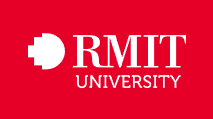Research on the Legal System of Representative Action in China
DOI:
https://doi.org/10.63313/SSH.9020Keywords:
Representative action, Group disputes, Institutional improvementAbstract
As a special litigation form, representative litigation has more prominent advantages than traditional litigation mode in dealing with group disputes. The theoretical basis of agency litigation includes litigation efficiency, right relief and unity of application. As far as the judicial practice of our country is concerned, the actual operation effect of this system has not reached the initial expectation of the legislation, its application rate is very low, and its bearing function is also limited to a certain extent, can not meet the actual needs of solving group disputes. The problems in the representative litigation system mainly lie in the following aspects: the limited application scope of the representative litigation, the imperfect announcement procedure, the blank of the appeal legislation procedure and the lack of the reward mechanism. Therefore, in order to play the role of this system well, we must constantly improve it and test it in practice, so as to better play its due role. It is necessary to expand the scope of application of representative litigation, lower the threshold of application, so that more and more parties involved in a large number of cases to participate in litigation activities and protect their legitimate rights and interests. Second, we should improve the announcement procedure, for some" Free rider" illegal acts, will be severely punished. In addition, we should perfect the legislative 23 procedure of appeal, because in our country's litigation system and judicial interpretation, there is no special legislative provision for representative litigation, therefore, there is a contradiction between the judicial interpretation and the actual implementation of the appeal, which requires us to conduct an in-depth analysis and study on the problems existing in the appeal procedure, and constantly improve and optimize it. Finally, we should build a mechanism to reward and motivate the litigant representative, when a party with a large number of litigants wins a case in group litigation, the representative can be given the right to receive compensation in priority, and get paid for it.
References
[1] Yang Yunxia, Qin Xiaojing & Li Yajuan. “An Analysis of the Representative Action System Using Game Theory,” Journal of Northwest University, 2005, no. 3.
[2] Wang Xinping, Chen Hangping & Liu Junbo. Chinese Civil Procedure Law, 2nd ed., Beijing: Higher Education Press, 2020, pp. 189-200.
[3] Zhang Weiping, ed. Litigation Framework and Procedure—A Jurisprudential Analysis of Civil Procedure Law, Beijing: Tsinghua University Press, 2000, p. 316.
[4] Zhu Lei. “Basic Models and Path Choices of Group Litigation: A Comparative-Law Study Focusing on the United States, Germany, and Japan,” Journal of the CPC Urumqi Municipal Committee Party School, 2013, no. 3.
Downloads
Published
Issue
Section
License
Copyright (c) 2025 by author(s) and Erytis Publishing Limited.

This work is licensed under a Creative Commons Attribution 4.0 International License.

















